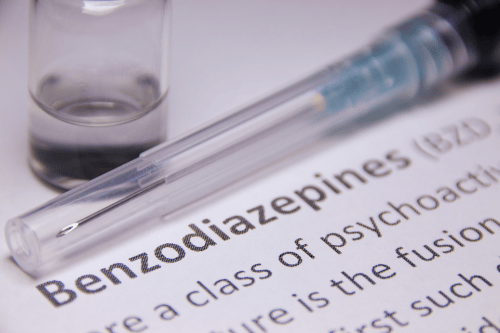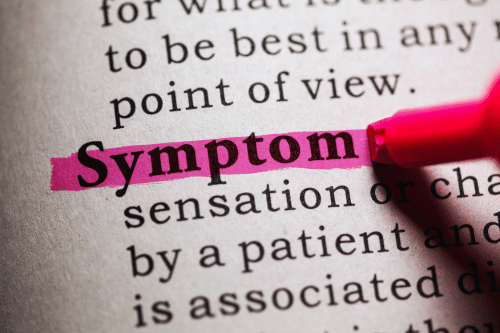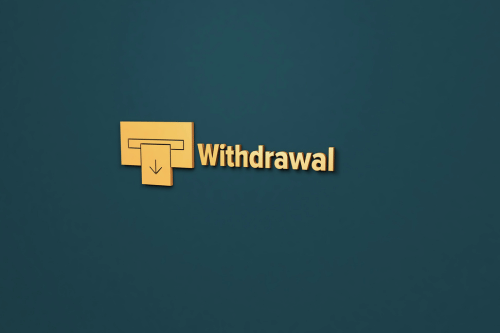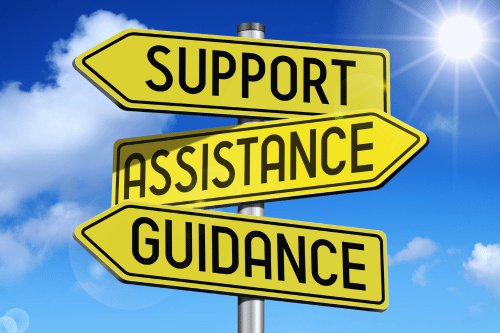

Benzodiazepines are a class of sedative drugs often prescribed for anxiety, panic attacks, insomnia, and seizures. When someone stops taking these drugs suddenly, they may experience a range of symptoms. This process is known as benzodiazepine withdrawal, and it can lead to serious mental and physical health risks, including nausea, confusion, dizziness, and muscle discomfort.
“What are the symptoms of benzodiazepine withdrawal?” you may ask. At Sullivan Recovery, we understand how dangerous benzodiazepine withdrawal can be without medical support. Our outpatient drug and alcohol detoxification services in Mission Viejo help individuals manage substance dependence safely. We monitor for signs such as tinnitus, fatigue, headache, and changes in sleep or appetite, all of which may indicate worsening physical dependence. If you’re experiencing withdrawal or suspect benzodiazepine use disorder, we encourage you to seek help before symptoms escalate to conditions like status epilepticus or delirium.
Benzodiazepine withdrawal happens when the brain reacts to the sudden absence of the drug, disrupting essential chemical signaling. Long-term use alters neurotransmitter activity, especially at the GABAa receptor, which regulates sleep, muscle tone, cognition, and perception. Removing the medication causes a rebound effect, overstimulating the central nervous system and leading to anxiety, confusion, and seizure risk.
Common benzodiazepines include alprazolam, lorazepam, clonazepam, diazepam, and temazepam. These controlled substances are used for anxiety, insomnia, panic attacks, and muscle spasms. Each drug varies in its dose, half-life, and side effect profile, influencing how withdrawal symptoms develop.
Stopping these depressants “cold turkey” can overwhelm the nervous system, resulting in severe withdrawal symptoms like hallucination, delirium tremens, and status epilepticus. The risk of complications increases when benzodiazepines are combined with alcohol, opioids, or other sedatives. Medical detox and abuse treatment programs, such as those at Sullivan Recovery, reduce dangers through structured support, therapy, and careful tapering guided by a physician.

Withdrawal symptoms can begin within hours to a few days, depending on the length, dose, and type of medication used. These symptoms reflect the brain’s overactive state as it adjusts to the absence of the anxiolytic or hypnotic drug.
Early signs may include:
Irritability, nervousness, and sudden changes in behavior, especially under high stress
Severe insomnia with reduced rapid eye movement sleep, often worsened by fatigue
Headache, dizziness, photophobia, and sometimes tinnitus
Heightened anxiety, panic, fear, and even paranoia
Muscle tension, spasm, or stiffness in the arms, legs, and neck
These symptoms occur as the calming influence of the GABAa receptor is lost, leading to an excess of excitatory stimulus in the nervous system. Patients may also report nausea, changes in appetite, elevated heart rate, and blood pressure, all signaling early physical dependence responses. Proper management with therapy, antidepressants, or transitional agents like buspirone and carbamazepine can help regulate these symptoms in an outpatient clinic like Sullivan Recovery.
In more serious cases, benzodiazepine withdrawal can trigger dangerous symptoms that require immediate medical care:
Seizure, which can escalate to status epilepticus
Delirium, confusion, and amnesia
Hallucination, both visual and auditory
Tachycardia, irregular heart rate, and high blood pressure
Suicidal ideation or intense emotional distress
Sullivan Recovery uses evidence-based therapy, medication, and insurance-covered treatment options to reduce these risks during detox.
Physical symptoms of benzodiazepine withdrawal often mimic other medical disease presentations but stem from overstimulation of the central nervous system and a lack of GABAa receptor regulation. The imbalance of neurotransmitters like GABA and serotonin contributes to widespread discomfort and physical distress.
Perspiration, nausea, vomiting, or diarrhea may occur due to heightened stress responses and autonomic nervous system dysregulation.
Tinnitus, photophobia, and altered perception reflect sensory hypersensitivity during withdrawal from sedative drugs like clonazepam and alprazolam.
Fatigue, muscle weakness, and paresthesia—a tingling or burning sensation—result from disrupted nerve signaling and poor muscle control.
Appetite loss, combined with poor nutrition, may cause weight loss, electrolyte imbalances, and worsened symptoms.
Tremors and restless limbs, including restless legs syndrome, may stem from dopaminergic and serotonergic pathway disturbances triggered by the absence of the prescription drug.
These symptoms can overlap with other health issues and are frequently misdiagnosed or dismissed, especially if a patient has concurrent alcohol or stimulant history. It’s essential to share your full benzodiazepine use, including any use of diazepam, temazepam, or triazolam, with a qualified physician or clinic. At Sullivan Recovery, we assess these physical symptoms during outpatient detox, helping manage discomfort with personalized care, proper medicine, and therapy interventions.

The psychological effects of withdrawal can be long-lasting and impact daily functioning. Symptoms include:
Extreme fear, agoraphobia, and depersonalization
Depression, often requiring antidepressant support like fluoxetine or paroxetine
Disrupted attention, concentration, and motivation
Changes in sleep quality and chronic insomnia
Psychosis-like states including derealization and schizophrenia-like symptoms
Many individuals also experience suicidal ideation, emotional stress, and paranoia as neurotransmitter systems struggle to regulate mood and perception. These can persist for months, especially without proper treatment for benzodiazepine use disorder or access to structured outpatient therapy programs such as those offered at Sullivan Recovery.
Over time, physical dependence develops as the brain adapts to the presence of the drug. This leads to:
Changes in GABA and serotonin systems
Altered cognition and memory
Need for higher dose to feel the same effect
Disrupting this balance through sudden withdrawal can lead to serious effects like tachycardia, nerve hypersensitivity, and even catatonia in severe cases. Repeated exposure to prescription drugs like midazolam, zopiclone, or trazodone may also contribute to prescription drug addiction, requiring structured care. Professional abuse treatment, often supported with medications such as fluoxetine, is essential to prevent long-term damage and support safe recovery.
Not all benzodiazepines are equal. Some are short-acting and have a higher withdrawal potential, including:
Alprazolam (Xanax)
Lorazepam (Ativan)
Triazolam (Halcion)
Shorter-acting drugs often lead to more intense symptoms such as nausea, panic, and rapid changes in sleep and behavior. Longer-acting ones like diazepam, clonazepam, and chlordiazepoxide may produce slower but prolonged symptoms, often requiring extended tapering.
Mixing alcohol, stimulants, or opioids increases complications, especially when combined with other prescription drug or controlled substance use. These combinations can intensify confusion, raise blood pressure, and elevate the risk of relapse, especially during detox without medical supervision.

Stopping benzodiazepines slowly, or tapering, helps reduce the intensity of withdrawal symptoms by allowing the nervous system to adjust gradually. Medical detox programs often use:
Long-acting benzodiazepines like diazepam or chlordiazepoxide
Flumazenil, a receptor antagonist, in some clinical settings
Adjunct medicine like carbamazepine, propranolol, or pregabalin
These medications help stabilize blood pressure, manage muscle spasm, and reduce the risk of seizure and hallucination. At Sullivan Recovery, we create tapering plans in an outpatient setting, supported by therapy, meditation, and nutritional guidance. We also monitor changes in appetite, fatigue, and sleep to prevent relapse and support brain recovery.
Going cold turkey may sound like a quick fix, but it often results in:
Increased anxiety, panic, and confusion
Seizures, which may be fatal
Poor sleep, muscle spasm, and elevated blood pressure
High relapse risk without support
Stopping suddenly can also lead to hallucination, derealization, and dangerous spikes in heart rate and pressure, particularly in those with co-occurring alcohol or stimulant use. Outpatient programs like ours in Mission Viejo provide ongoing monitoring, personalized care, and long-term support to prevent prescription drug addiction and manage physical dependence safely.
Therapy addresses the mental and behavioral side of benzodiazepine use disorder. At Sullivan Recovery, we offer:
Cognitive-behavioral therapy to treat stress, addiction, and sleep issues
Group counseling to support motivation and reduce fear
Medication management with antidepressants or anxiolytics like buspirone
Our clinic provides flexible outpatient services covered by most insurance providers.
Benzodiazepines share properties with barbiturates, zopiclone, zolpidem, and alcohol. All are central nervous system depressants with hypnotic, anxiolytic, or muscle relaxant effects. These substances also increase the activity of the GABAa receptor, altering neurotransmitter function and promoting sleep and reduced muscle tone.
Unlike amphetamines or other stimulants, these drugs slow brain activity. Their withdrawal creates a “stimulus rebound,” increasing blood pressure, heart rate, and mental overactivity. Combining benzodiazepines with other depressants or prescription drug misuse raises the risk of addiction, relapse, and life-threatening side effects during detox.

Without treatment, prolonged withdrawal can cause:
Chronic insomnia, fatigue, and dizziness
Ongoing confusion, irritability, and poor cognition
Worsening of underlying disease, especially mental health disorders
The longer benzodiazepine use continues, the harder it becomes to stop safely. Early intervention reduces damage to the brain and nervous system.
Those at highest risk include people who:
Take high doses over long periods
Combine benzodiazepines with alcohol, opioids, or antidepressants
Have co-occurring conditions like pregnancy, schizophrenia, or substance dependence
Attempt detox without medical help
If you or someone you know fits these conditions, our outpatient treatment team can help manage the risks.
Sullivan Recovery offers personalized care for benzodiazepine withdrawal. We:
Evaluate every patient’s medication history and health status
Offer structured outpatient detox with 24/7 support
Use psychopharmacology best practices, including tapering strategies
Provide access to licensed physicians, therapists, and nutritionists
We also work with major insurance providers to reduce costs and increase access to care.
What are the symptoms of benzodiazepine withdrawal? They range from mild discomfort to life-threatening events. These include seizure, delirium, nausea, confusion, and severe insomnia. They affect the mind, body, and nervous system.
If you are struggling with benzodiazepine use disorder, don’t go through withdrawal alone. Sullivan Recovery in Mission Viejo offers safe, outpatient abuse treatment for those dealing with addiction, physical dependence, or failed attempts at quitting. Contact us today for more information on how to begin your recovery safely.
U.S. Food and Drug Administration (FDA) – Benzodiazepine Dependence and Withdrawal
National Institutes of Health (NIH) / National Library of Medicine – Benzodiazepine Withdrawal
Substance Abuse and Mental Health Services Administration (SAMHSA) – Detoxification and Substance Abuse Treatment
National Institute on Drug Abuse (NIDA) – Commonly Abused Drugs: Benzodiazepines
At Sullivan Recovery, as an in-network provider we work with most insurance plans, such as:
And More
If you or a loved one are struggling with mental health challenges or substance abuse, reach out to Sullivan Recovery today. Our team of compassionate professionals is here to support your journey towards lasting well-being. Give us a call at 949-836-7180.
The duration of benzodiazepine withdrawal varies depending on the type of drug, length of use, and individual health factors. Acute symptoms typically last 1–4 weeks, but protracted withdrawal can persist for several months. Symptoms like insomnia, anxiety, or cognitive issues may linger without ongoing treatment or support.
While over-the-counter (OTC) medications may offer relief for mild symptoms like nausea or headache, they do not address the root neurochemical imbalances caused by withdrawal. Relying on OTC products alone can delay proper care and increase the risk of complications. Medical supervision is strongly recommended for managing withdrawal safely.
Withdrawing from benzodiazepines at home can be dangerous, especially for those with long-term use or high doses. Risks include seizures, hallucinations, and unstable vital signs. An outpatient detox program like Sullivan Recovery offers a safer alternative with physician oversight and access to medication, therapy, and nutritional support
Yes, benzodiazepine withdrawal can worsen or unmask underlying mental health conditions such as depression, panic disorder, or psychosis. Symptoms like derealization, paranoia, or suicidal ideation may emerge or intensify during withdrawal. Early psychiatric support can help manage these risks effectively.